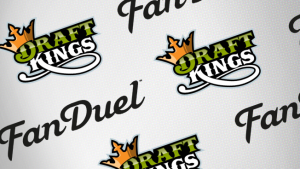
One of the most anticipated events in the world of daily fantasy sports (DFS) – the merger of two giants, DraftKings and FanDuel – has been cancelled.
The two sides announced they would not push forward with the planned move, after the US Federal Trade Commission (FTC) had objected the merger.
FTC Says No
FTC expressed its concerns over the whole move, since the new company – resulting from the merger itself – would own more than 90% of the DFS market.
Since the first mention of the possible merger of the two companies, many speculated the FTC wouldn't approve of this move. It seems they were right all along.
Jason Robins, DraftKings Chief Executive Officer, said the termination of the agreement was in the best interest of the company's consumers, employees and investors. By moving forward separately, DraftKings will be able to focus on the future plans, which include providing innovative and engaging sports experience to a vast base of customers around the globe.
Robins commended the loyalty of DraftKings players and said the Boston-based provider was looking forward to the start of the NFL season, scheduled to commence on September 7.
FanDuel The Biggest Loser
On the other hand, FanDuel executive, Nigel Eccles, said although the company hadn't changed its opinion regarding the merger, it had determined that moving forward as an independent company was in the best interest of its shareholders, customers and employees.
Many, including Eccles, still believe the move would have been beneficial to customers and the sport itself.
New York-headquartered FanDuel was founded in 2009, while DraftKings is three years younger, but also in the stronger market position. According to some analysts, it is FanDuel that loses more with the termination of the merger.
Daniel Barbarisi, author of ‘Dueling With Kings’ said DraftKings were in the stronger position, with raising more money and continuing to push forward. He added he would put his money on DraftKings if the two companies went to war again.
DFS market is becoming more and more popular, with estimated 57 million players in the United States alone.















